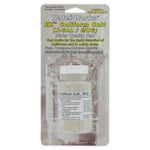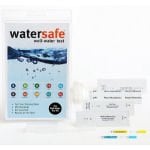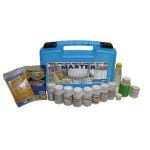News outlets LOVE to blast the airwaves with news of E. Coli in water supplies and some make the mistake of positively linking the presence of E. Coli to fecal contamination.
While more often than not the presence of E. Coli in a water supply does mean human or animal waste has somehow made its way into the sample, it does not guarantee that has happened.
It does, however, still mean a qualified water testing lab such as National Testing Labs should take a look at the quality of the water to determine its potability.
February 24, 2011 – GRAFTON, Mass. – E.coli bacteria has been detected in an untreated water sample collected recently from the Worcester Street well, the Grafton Water District is reporting.
Grafton Water District Manager Matt Pearson stressed that the sample was taken from the well prior to treatment and the well was immediately taken offline. Boiling of water will not be required for Grafton residents.
The wells are routinely monitored for drinking water contaminants to ensure the safety of the water supply. On Feb. 24, the district was notified that a fecal indicator, E.coli bacteria, was detected in one untreated water sample collected on Feb. 22 from the Worcester Street well.
Samples collected on the same date from Grafton’s drinking water — samples taken after the routine treatment with chlorine disinfectant — did not detect any fecal contaminants.
Fecal indicators are microbes whose presence indicates that the water may be contaminated with human or animal wastes. Microbes in these wastes can cause diarrhea, cramps, nausea, headaches, or other symptoms. They may pose a special health risk for infants, young children, some of the elderly, and people with severely compromised immune systems. ( source )
While definitely something to keep an eye on, other things besides coliform bacteria in drinking water also serve as indicators that drinking water contamination may have occurred.
Simple tests for changes in pH, alkalinity and heavy metals — for literally pennies per test in some cases — can alert consumers to potentially dangerous changes in the quality of their water.
With testing supplies as inexpensive as they have become, it makes little to no sense for people not to take an interest in the quality of the water they drink.







